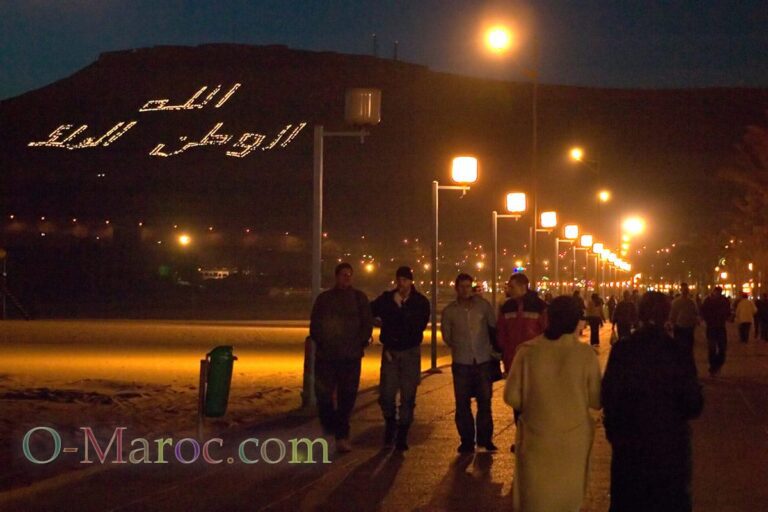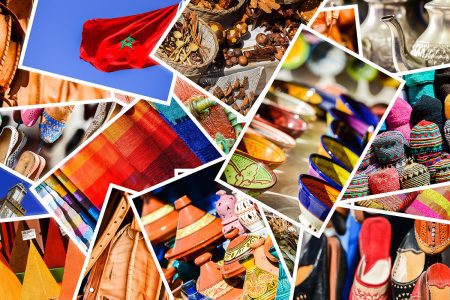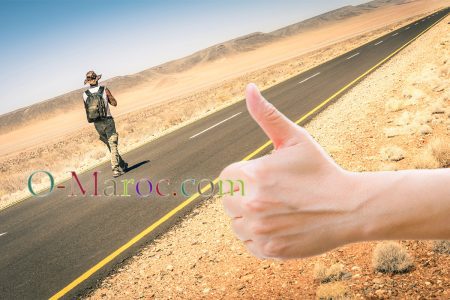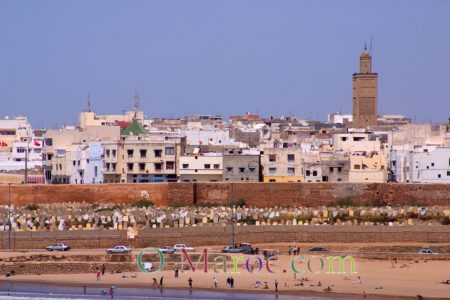The question was asked on a forum: should you cancel your holiday in Morocco? After the kidnapping of another French hostage in Kabylia, and Daesh’s threats to kill French people anywhere in the world, even with a rock, can you feel safe in Morocco?
Algeria is not Morocco
Politically, geographically and culturally, Algeria and Morocco are very different countries. And Kabylia is a very special enclave within Algeria.
Kabylia has been a troubled region since independence. In 1980, riots in Tizi-Ouzou sparked off the Berber Spring. This was followed by numerous riots and disturbances, including the schoolbag strike and the Black Spring.
From 1991, the start of the Algerian civil war, the Islamist movements came into play, in a very particular mix where opposition to central power took precedence over personal conviction. The majority of Kabyles were far from being Islamist. Movements for freedom of religion or the non-observance of the fast during Ramadan are important.
But the GIA, then the FIS and now AQIM, and even Daesh, have also managed to find local relays, and benefit from the passive complicity of the population, which is not unhappy to see the central government in trouble. Unless, as some say, it is the other way round, and the Islamist militias are protected by the central government in order to thwart the Kabyle separatist movements and “punish” the people who support them.
In the far south, Algeria has no control over its Saharan territory, like all the other countries: Mauritania, Mali and Niger have not managed to police these immense areas where local guerrillas play off the central authorities. This is nothing new: the Saharan tribes have never really been subjugated.
Nothing like that in Morocco
Alongside the events in Kabylia, the pro-independence demonstrations of certain Berber organisations are as quiet as a tea room in a small English provincial town. Islamist expansions have always been strongly repressed, and deadly attacks on Moroccan soil are extremely rare, counting on the three fingers of one hand.
The country has not experienced civil war, with the weakening of the state that that always implies. On the contrary, during the reign of Hassan II, a strong police state was established, based on an extremely fine-meshed system of policing: the mokkadem (the person in charge of the neighbourhood) knows exactly who is who… it was said that in Morocco, there were two policemen for every inhabitant!
The fact that Moroccans voted into power a moderate Islamist government in the last elections, which doesn’t even really ban the sale of alcohol during Ramadan, doesn’t mean that they would support EIL. On the contrary, all I hear around me is disapproval of them. And above all, if you look at the history of Morocco, you can see that revolutions have always been internal.
Since the Hegira, there have been no conquests… not even the French, who had only established a protectorate, unlike Algeria. The King of Morocco has the title of “Commander of the Faithful“, which means a lot to most Moroccans. The totally external location of Daesh is a handicap. Historically, Morocco has not had very good memories of Caliphates, and Syria is another world…
Finally, the Saharan part of Morocco is very small, still densely populated and heavily guarded by the military. Smuggling is tolerated, of course, but that’s as far as it goes. The land borders have been closed since the 1992 attack on Atlas Asni in Marrakesh, for which Algerian groups were blamed.
Yes, but there are many Moroccans among the fundamentalist Islamists.
It is true that many of the arrests are of people of Moroccan nationality or origin. In reality, they are overwhelmingly MREs, descendants of emigrants living in Europe, and sensitive to currents of propaganda that are virtually non-existent in Morocco.
They are very far removed, in their daily practice of faith and in their political ideas, from the practice ‘back home’. It’s beyond the scope of this blog to discuss the whys and wherefores in detail, but generally speaking, emigrants, whether Moroccan, Russian or from Pétaouchnok, tend to hold on to a backward-looking vision of their culture and values, which makes them more susceptible to certain ideologies.
These Moroccans are not in Morocco.
Travelling safely, in Morocco and elsewhere
In reality, in a country like Morocco, the risks are linked to specific situations and restricted areas; it’s more a question of general precautions to be taken just about everywhere if you want to travel safely.
Just about everywhere, including Europe and the United States. Before focusing on the execution of Hervé Gourdel, we can look back at 2011, with the killings in Norway, the Boston bombing and, closer to home, the Merah affair…
Follow local safety recommendations
If, instead of trusting unofficial “guides” he met on Facebook, Hervé Gourdel had followed the Algerian government’s safety recommendations, reported himself to the local authorities and contacted the guides’ office, he would probably still be alive. But he preferred to play the “adventurer” card.
Avoid tourist hotspots at peak times
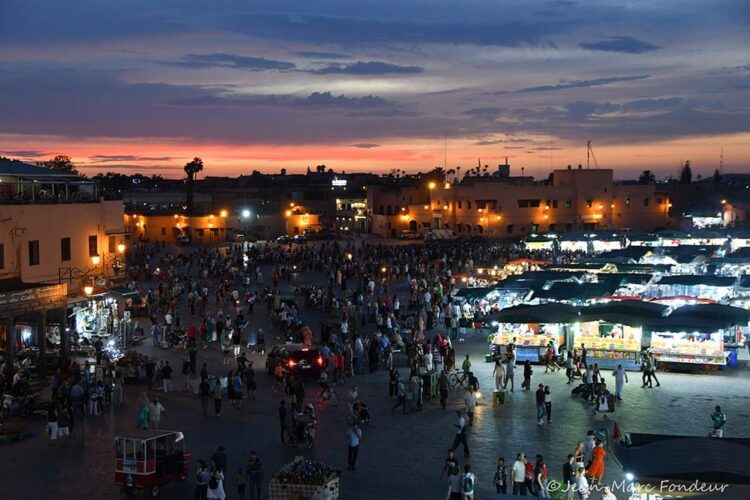
If there are places to avoid in Morocco, they’re the ones with the highest concentration of tourists: Jemaa Fna, among others, queuing for a long time outside to enter a monument (Majorelle, for example).
These places are more pleasant when there are fewer people anyway.
Avoid synagogues and Jewish cemeteries
It’s a great pity, because the richness of the Jewish tradition in Morocco is genuine, with a community that is still very much alive in a tolerant country where Jews and Muslims live well together… but that’s the reality, the Middle East imbroglio is leading to attacks on Jewish targets. We might as well keep our distance.
Give preference to local hotels and restaurants
Throughout North Africa, the establishments targeted by the attacks were large, rather upmarket chain hotels, which were targeted for their visibility and reputation. A riad, a small Moroccan hotel also frequented by Moroccans: this will not be the priority target.
Travelling alone or in a small group
A chauffeur-driven 4×4, a hire car or a minibus is much less conspicuous than a Marmara coach. You can’t tell the nationality of your customers from the outside… In short, as with monuments, let’s travel in small groups to travel happily.
Follow your instincts
If you’re afraid, if you “don’t feel it”, you shouldn’t go. You may be right.
Above all, this fear will change our attitude and put us in the position of victim. That doesn’t mean we’ll provoke a terrorist attack, but it does mean we’ll attract a thief or a mugger.
Going to Merzouga?
Merzouga’s immediate proximity to the Algerian border is a cause for concern.
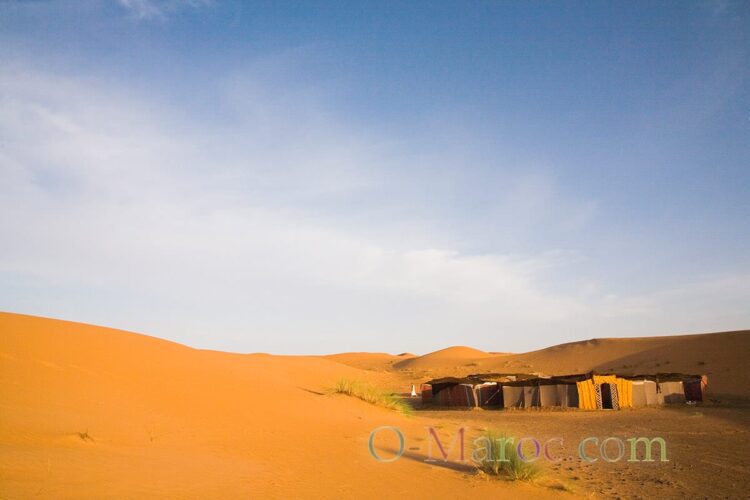
In fact, personally, I think that the Merzouga area is one of the safest in Morocco. Precisely because of its proximity to the border, and because of its proximity to Tindouf.
Tindouf is the ‘camp’ of the Polisario’s Saharan refugees. In other words, an organisation whose motto, “Freedom, Democracy and Unity“, is anything but Islamist. It is an organisation that has more support from the current French government than from previous ones, and also has a fair amount of support from the United States, which is trying to influence the Moroccan position. In short, it is an organisation that would have everything to lose by siding with fundamentalism and jihad.
What’s more, while the Berber families of Merzouga are close to the Berber inhabitants on the “Algerian” side of the dunes (one is never very nationalistic in the deserts), these Berber tribes are much further removed from the Hassania and Moorish tribes, i.e. the Arabs, who make up the Polisario contingent.
These same inhabitants live solely from tourism, and they know what they have to lose. With no ideological ties to their neighbours or to the “jihad”, the people of Merzouga are laying their golden goose.
Only for us tourists is the desert empty. For the locals, they always know what’s going on. It was in Namibia, the least populated desert on earth, that I was told (and proved):
whatever you do in the desert, there’s always someone there to see you….
This is no doubt why the Polisario’s few successful incursions into Morocco have been made not towards Merzouga, but further south-west, towards M’hamid and above all Laayoune, in Saharan territory.
However, because of its proximity to Tindouf, the Merzouga area is one of the most tightly controlled by the Moroccan police and army.
By the way, here’s the map that can be found on the Ministry of Foreign Affairs website, in the “Advice to Travellers” section, and which was updated on 25 September. I’ve put Tazzarine on it:)
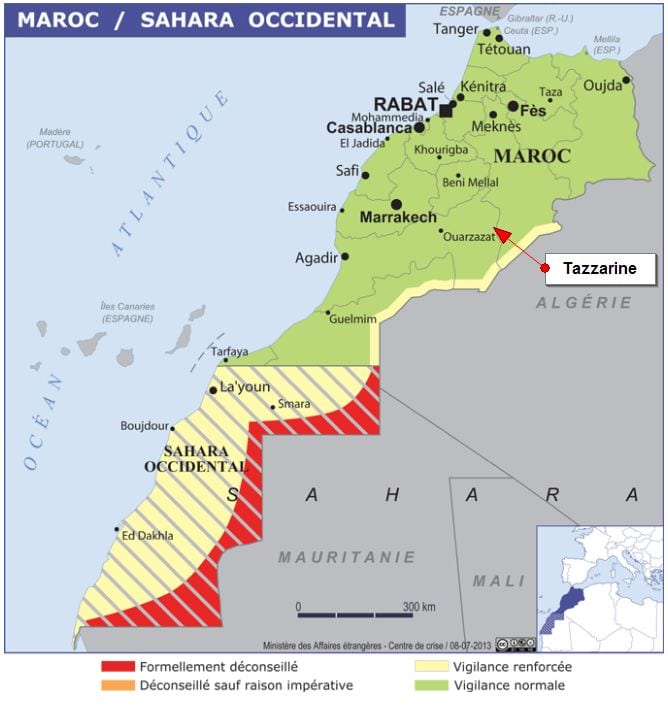
So should you cancel your holiday in Morocco?
Quite honestly, here at Mezgarne, we’d rather not have any customers than lose them in tragic circumstances.
And for the moment, we don’t think there’s any reason to be afraid. That can change, quickly of course, as it has in France. But I feel safer in Morocco than in certain places in Paris… If things change, we’ll say so, just as honestly.
 A typo or syntax error? You can select the text and hit Ctrl+Enter to send us a message. Thank you! If this post interested you, maybe you can also leave a comment. We'd love to exchange with you !
A typo or syntax error? You can select the text and hit Ctrl+Enter to send us a message. Thank you! If this post interested you, maybe you can also leave a comment. We'd love to exchange with you !

